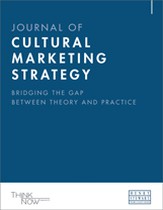Applying the theory of reasoned action to measure intent to purchase halal food
Abstract
The halal market exists primarily to cater to practising Muslim consumers, as it permits the sale of only those products and services permissible under Islamic law. Non-Muslims, however, are learning that halal products meet superior standards in terms of hygiene, safety and quality. This is contributing to a growing demand for halal goods around the world. With a focus on the largely untapped halal market in India, this study examines the relationship between attitudes and intent to purchase halal products among both Muslim and non-Muslim consumers. The study provides an opportunity for entrepreneurs and retailers to understand better how the halal market may be expanded in India and beyond. As such, this study has research and practical implications.
The full article is available to subscribers to the journal.
Author's Biography
K. Ramya is an assistant professor in the Department of Business Administration, School of Commerce & Management, Avinashilingam Institute for Home Science and Higher Education for Women. She has approximately 20 years of teaching and research experience in the field of management. Her research interests include consumer behaviour, contemporary finance, corporate finance, behavioural finance and stock markets.
